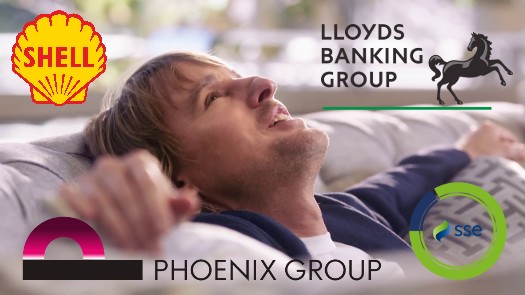 As someone who successfully ran a mail order business in the 1990s, I can advise that in a manner of “speaking” [writing] successful advertising is a bit like driving a motor car.
As someone who successfully ran a mail order business in the 1990s, I can advise that in a manner of “speaking” [writing] successful advertising is a bit like driving a motor car.
You see, when one wishes to get from “A” to “B” without having to “leg it” by using a car, one has two tasks; firstly starting the engine and secondly managing to drive it. With an advert, the two equivalent tasks are; firstly get the attention of the person and secondly provide content that gets them to enquire about buying the product. In BOTH cases (car and advert), the first task is much much easier and less involved than the second!
In my case (as a potential customer of a sofa supplier), the advert from which the above background image has been taken, has only achieved task #1. It has failed in task #2.
The reason for the inclusion of the four company logos is to serve to illustrate why the image of the actor Mr Owen Wilson from Dallas, Texas lying on a sofa doing nothing and being a lazy bones strikes a chord with me. You see, although Mr Wilson, doubtless a busy professional actor, will be very far from being a “lazy bones” – the same cannot be said about your Editor dear reader!
Now it can be said that I do not emulate the prone position occupied by Mr Wilson for the simple reason that I do not possess such an item of furniture on which to do this and because of the size of my small apartment, no space to put such an item in any event!
The reason why I have the luxury of being able to be “bone idle” is that my income source does not depend upon me turning up each weekday and performing paid labour! Which explains the use in today’s title of Queen Victoria’s famous description (January 1860) of her eldest son Albert Edward, Prince of Wales!
That is not to say I do not undertake any activities that do not result in a pecuniary advantage. I do. The recent panic (with varying degrees of justification) has caused a slump in the FTSE 100 index which I have duly taken advantage of by increasing my holding in Lloyds Bank by a fifth.
In making stock market investments it is absolutely crucial to understand the different factors which affect the price of a share/stock and the dividend that is paid upon that share.
It HAS to be understood that the price of a share/stock is governed by three principal factors:
#1: SMT (Stock Market Time, aka “Street Time” [as in Wall Street, NY]). SMT is often called “future time” as it takes into account anticipated and expected events. If an event might or will take place that will negatively affect the profitability of the company it’s shares/stocks will decline in price to take this into account BEFORE it happens. Conversely, if an event might or will take place that will positively affect the profitability of the company it’s shares/stocks will increase in price to take this into account, again, BEFORE it happens.
#2: The profitability and financial health of the company.
#3: Market sentiment: Sometimes “events” global or national can affect the generality of the market and all or most shares/stocks will be affected. President Kennedy’s famous aphorism, “a rising tide lifts all boats” HAS to be borne in mind when it comes to stock market investing! This because such market rises tends to boost the share/stock prices of shaky companies as well as the stable ones! The corollary of course is true: “a falling tide lowers all boats”.
It HAS to be understood that the dividend paid by a company is governed by two principal factors:
#1: The profitability of the company.
#2: The particular need the company might have to keep paying a level of dividend sufficient to keep the share/stock price at a level that enables the market to maintain confidence in the company.
In respect of my own share/stock holdings, the negative market effects of Covid-19 has driven down the price of all four companies whose logos appear above. Of the four, Phoenix and SSE have been the less affected than Royal Dutch Shell and Lloyds Bank. Using the money to increase my holding in RDS would have resulted in a greater dividend income that that which will obtain from the increase in the Lloyds holding. However, RDS and Phoenix tussle for the first and second places in my portfolio accounting for around two thirds of it. One of the rules ALL stock market investors should follow is NOT to put one’s eggs in one basket. It is of course interesting to note that the author of that particular aphorism was Andrew Carnegie who did precisely that after the end of the US Civil War by selling off his oilfield investments and concentrating all his assets in his steel making business. He justified this action with the second half of the aphorism: “watching the basket” – meaning that Mr Carnegie paid particular attention to the good management of his companies.
Happily for moi, Lloyds Bank is – for the present time at least – under the strong and stable leadership of CEO Senhor António Horta-Osório. With the PPI burden now behind it, Lloyds appears to be doing all the right things. Doubtless turnover and profits will be affected by any economic problems this UK focused business will have to deal with but I’m confident that Lloyds will get through these without undue difficulty.
Speaking the Truth unto the Nation
